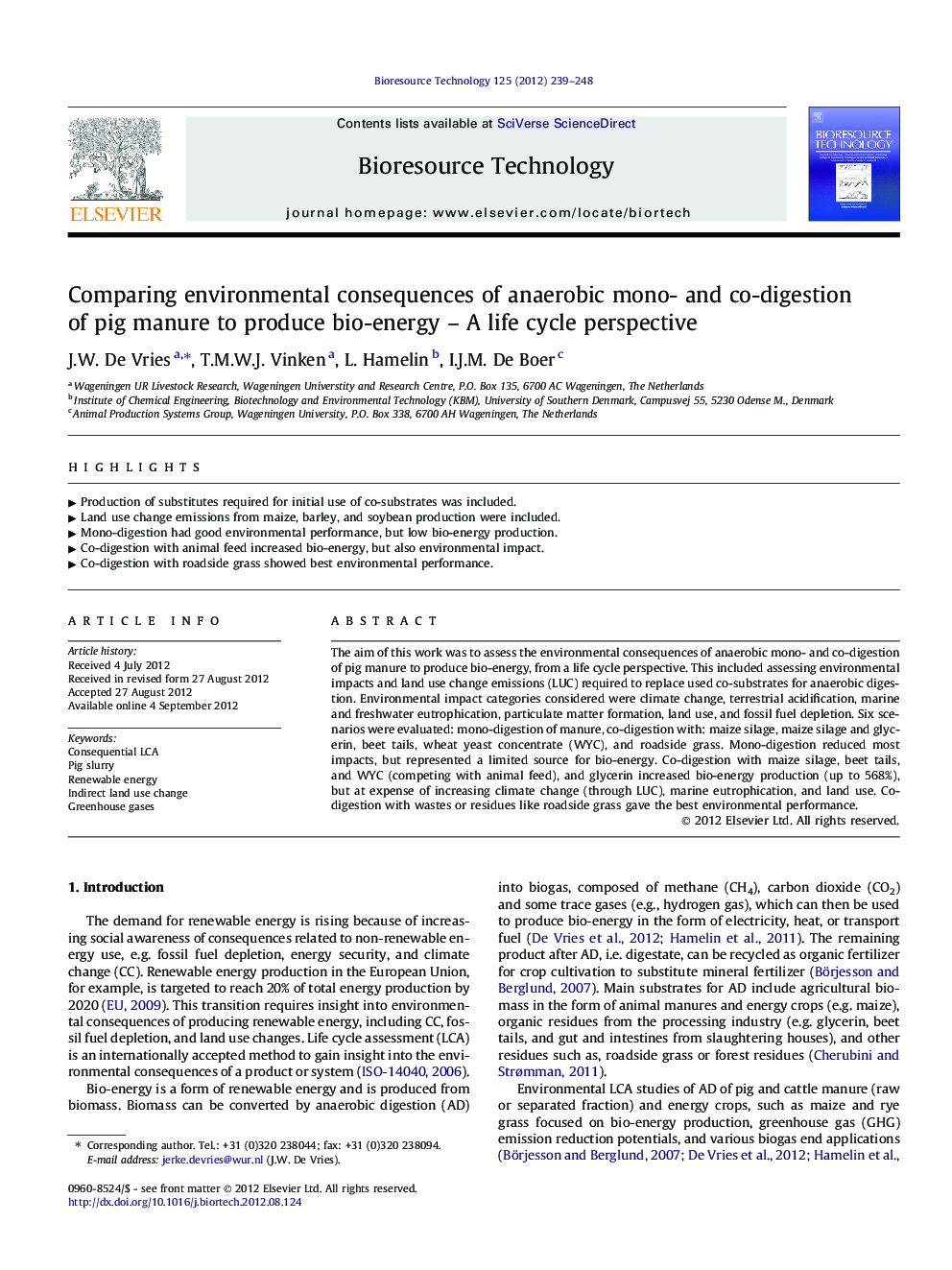| Article ID | Journal | Published Year | Pages | File Type |
|---|---|---|---|---|
| 681321 | Bioresource Technology | 2012 | 10 Pages |
The aim of this work was to assess the environmental consequences of anaerobic mono- and co-digestion of pig manure to produce bio-energy, from a life cycle perspective. This included assessing environmental impacts and land use change emissions (LUC) required to replace used co-substrates for anaerobic digestion. Environmental impact categories considered were climate change, terrestrial acidification, marine and freshwater eutrophication, particulate matter formation, land use, and fossil fuel depletion. Six scenarios were evaluated: mono-digestion of manure, co-digestion with: maize silage, maize silage and glycerin, beet tails, wheat yeast concentrate (WYC), and roadside grass. Mono-digestion reduced most impacts, but represented a limited source for bio-energy. Co-digestion with maize silage, beet tails, and WYC (competing with animal feed), and glycerin increased bio-energy production (up to 568%), but at expense of increasing climate change (through LUC), marine eutrophication, and land use. Co-digestion with wastes or residues like roadside grass gave the best environmental performance.
► Production of substitutes required for initial use of co-substrates was included. ► Land use change emissions from maize, barley, and soybean production were included. ► Mono-digestion had good environmental performance, but low bio-energy production. ► Co-digestion with animal feed increased bio-energy, but also environmental impact. ► Co-digestion with roadside grass showed best environmental performance.
